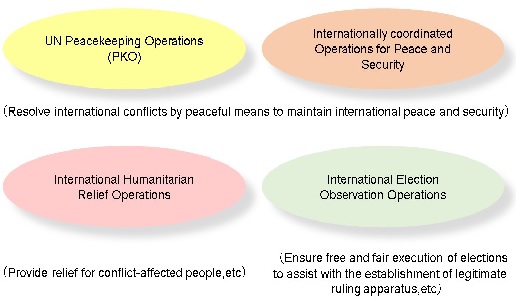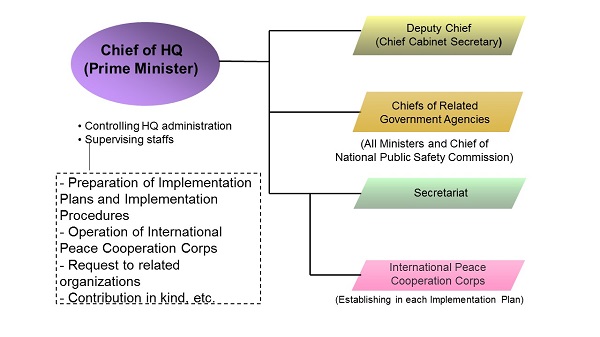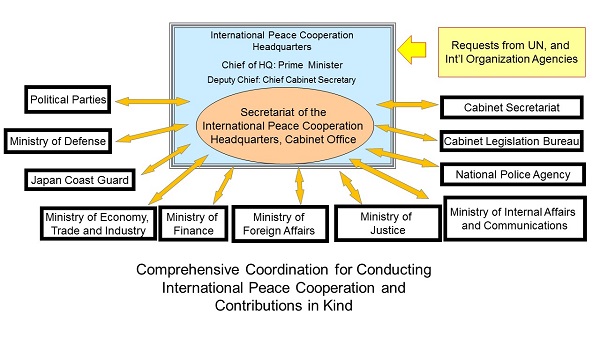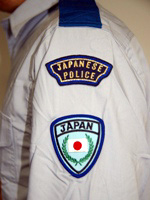Overview of Activities and Organization
Overview
In order to play a more active role for international peace, Japan enacted the the Act on Cooperation with United Nations Peacekeeping Operations and Other Operations(PDF:342KB)in June 1992. Ever since then, it has on many occasions provided personnel and in-kind contributions to assist efforts for international peace led by the UN and other organizations.
This law establishes the four pillars of Japan's international peace cooperation:
- Contributions to UN peacekeeping operations
- Contributions to internationally coordinated operations for peace and security
- Contributions to international election observation operations.
- Contributions to international election observation operations
It also stipulates that Japan's peacekeeping operations and etc. shall be carried out in according with the five principles.
The Five Principles
- Agreements on a cease-fire shall have been reached among the parties to armed conflicts.
- Consent for the undertaking of UN peacekeeping operations as well as Japan's participation in such operations shall have been obtained from the host countries as well as the parties to armed conflicts.
- The operations shall strictly maintain impartiality, not favoring any of the parties to armed conflicts.
- Should any of the requirements in the above-mentioned guideline cease to be satisfied, the International Peace Cooperation Corps may suspend International Peace Cooperation Assignments. Unless the requirements be satisfied again in a short term, the Government of Japan may terminate the dispatch of the personnel engaged in International Peace Cooperation Assignments.
- The use of weapons shall be limited to the minimum necessary to protect the lives of personnel, etc.
Four Pillars of Cooperation and Their Objectives

Tools of Cooperation

International Peace Cooperation Headquarters
The International Peace Cooperation Headquarters has been established within the Cabinet Office to administer Japan's international peace cooperation and contributions in kind. Headed by the Prime Minister, the Headquarters has a deputy chief, members, and the Secretariat. In addition, in order to conduct International Peace Cooperation Assignments and other activities, International Peace Cooperation Corps are set up for a specified time for each implementation plan.


International Peace Cooperation Corps
Members of the International Peace Cooperation Corps are selected by screening from volunteers or dispatched from the administrative organs concerned. After receiving training provided by the Secretariat, they undertake International Peace Cooperation Assignments.
When engaging in International Peace Cooperation, Corps members are required to wear badges indentifying their position.

